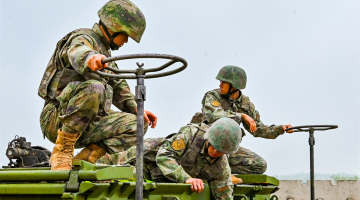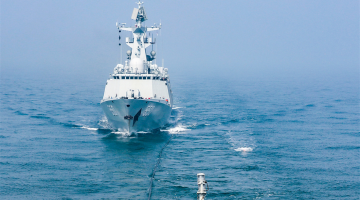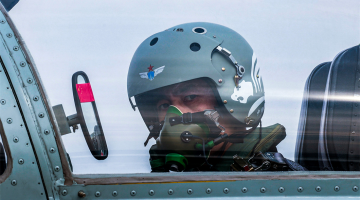
Now that transatlantic frictions that characterized the Donald Trump administration - from trade pressures, to the North Stream 2 project and the Iran nuclear issue - can be filed away, we face a new potential breaking point in relations between the US and Europe. The issue concerns COVID-19 vaccines.
The day after US president Joe Biden announced plans to deliver 100 million Pfizer-BioNTech doses in 100 days to US citizens, the pharmaceutical company temporarily reduced EU vaccine deliveries to focus on demands from the US. Pfizer told the EU Commission that it would not be able to fully meet the already promised delivery volume for the next few weeks to EU member countries, which were anxiously awaiting shipments.
The result is simple to imagine. Fewer vaccines for governments, fewer vaccinations, fewer people protected from Covid-19, and lots of irritation among European citizens. According to media reports, the slow roll-out of vaccines in the EU has severely affected its previous vaccination schedule. Delivery of AstraZeneca's vaccines to the bloc is also fewer than expected, putting millions of lives at risk.
Many suspect that the US, following Trump's America First policy, gave Pfizer a better offering than the one from Europe. In any case, what emerges from this story is the weakness of the European Union.
Europe has bargained with individual pharmaceutical companies and promised an equitable distribution of vaccines. However, in practice, Brussels was unable to assert its position, and its entire house of cards collapsed under the weight of reality. When various European governments complained about the non-deliveries, the EU showed that it was unable to stand up to the drug multinationals. Biden may be gentler than Trump in terms of foreign policy, but a new rift in relations between Europe and the US is on the horizon.
In the meantime, Beijing is accelerating its vaccination progress. And the number of people vaccinated has reached 24 million, according to the latest estimates. More importantly, that has been no news of any side effects, problems or hitches.
There are more and more foreign countries that are ordering stocks of Chinese vaccines, and many have already received large quantities in agreements with Beijing.
The maximum effort made by China in building a community with a shared future therefore appears clear, and not only for the numerous agreements made with nations around the world, but also and above all for the iron will to put the centrality of health before any other issue. The high moral and practical value of the concept of a human community with a shared destiny is unparalleled. This is why it is generating a growing consensus.
Vaccines developed by Chinese companies which are less expensive, easier to transport have become a key resource to break rich countries' privilege and safeguard developing countries' rights.
Outside of the West, many countries have made or are making agreements with Chinese companies, however, it does not yet appear that there have been discussions between them and EU regulatory bodies to start evaluating Chinese vaccines to their use.
Due to the mess between Brussels and Western pharmaceutical companies, and given the shortage of doses, a question arises: When will Europe also consider Chinese vaccines? Perhaps it would be appropriate to broaden their views and abandon any ideological prejudice to safeguard the well-being of citizens.
A good sign is that European leaders have continuously sent friendly signals to China-made and Russia-made vaccines. European Commission chief Ursula von der Leyen said Tuesday that coronavirus vaccines from Russia and China could be approved for use in the bloc if they "show all the data." German and French officials have also expressed such open attitudes.
Fabio Massimo Parenti is associate professor of International Studies at CFAU, Beijing, teaching also at the International Institute Lorenzo de' Medici, Florence. He is also member of CCERRI think tank, Zhengzhou, and EURISPES, Laboratorio BRICS, Rome, @fabiomassimos. Federico Giuliani is journalist at InsideOver, Far East expert, @Fede0fede opinion@globaltimes.com.cn









